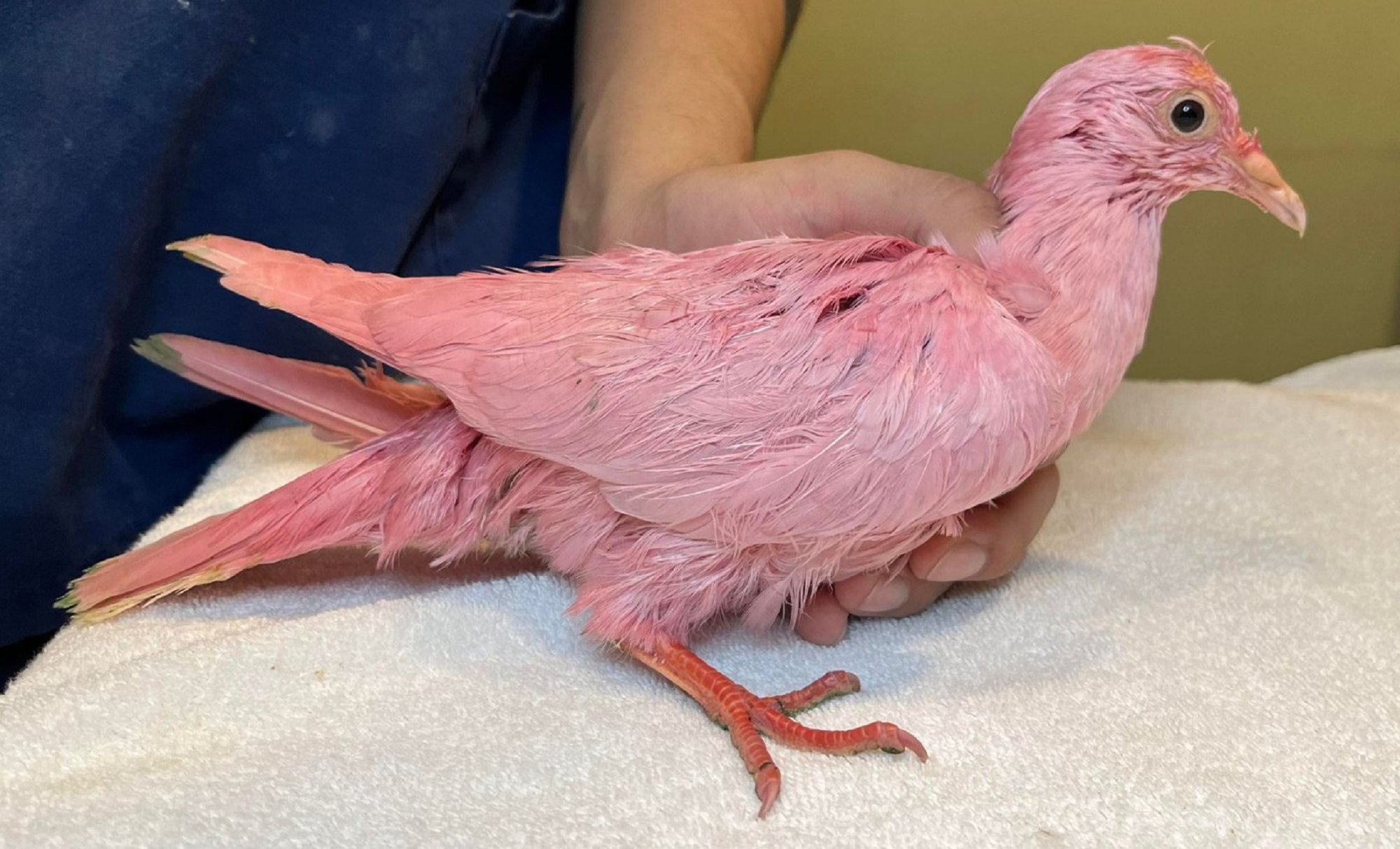

In living rooms, backyards, and public parks throughout the country, baby showers are being replaced by something a bit more dramatic. Some of today’s expectant parents share their joy by “revealing” their child’s sex in parties that feature balloons, cake, and confetti in pink or blue (or occasionally purple, if the parents want to signal that they will not know their child’s chosen gender for many years to come). But the biggest ones, fueled by social media trends, go even further, involving extravagant stunts. And these spectacles can wreak havoc on the environment.
A pink pigeon found in New York City, who some speculate was brightly colored for a gender reveal party, died from inhaling the dye’s toxins earlier this month. A couple who used a pyrotechnic device to reveal their baby’s gender started the El Dorado fire in California in 2020, which killed a firefighter and destroyed five homes and 15 buildings. An off-duty border patrol agent lit an Arizona forest on fire with a blue-colored explosive. And in one gender reveal party in Brazil, a couple dyed an entire river blue.
[Related:
[Related: How to build and extinguish a campfire without sparking a catastrophe]
While most gender reveal parties stick to colored cupcakes or other tame features, social media could be driving a few expectant parents to go bigger. Popular videos and posts can encourage people to mimic what others are doing, such as learning a TikTok dance, says Laura Tropp, a professor of communication arts at Marymount Manhattan College who specializes in representations of pregnancy, motherhood, and families in popular culture. Or they can take a trend to dangerous heights, which seems to be the case with the pigeon, river, and fires. Insurance companies are even posting liability advice for when reveals go wrong.
“You’re seeing this pressure on a lot of people to have the next-level gender reveal party,” Tropp says. “They involve color; they involve objects. And I think people love to watch all these extreme parties happening because they’re exciting.”
Not only are gender reveals visual phenomena—they are also able to make what used to be a very private human experience something more social. “Pregnancy is long, most of it is just happening inside a woman’s body,” Tropp explains. “So it’s the ability to kind of take an aspect of pregnancy, move it outside a woman’s body, and then make it exciting. And then maybe make it extreme to get the social media views that people want.”
[Related: TikTokers are taking a diabetes drug to lose weight. Now it’s in short supply.]
Tropp says it’s all part of the commoditization of pregnancy and parenthood. The baby product industry is estimated to reach $352 billion by 2023, and offers everything from “it’s a boy!” hand sanitizer to edible glitter bombs. “There’s this pressure on parents to be a part of all these rituals that were never associated with pregnancy or parenting,” she notes. “Gender reveal parties are a part of this moment where you could publicly express an aspect of your pregnancy really early on. So I think we’re seeing this kind of shift from parenting starting at the moment of birth to parenting starting much, much earlier.”
But gender reveal parties are just one of many human rituals that can be harmful to the environment, according to Bron Taylor, a professor of religion, nature and ethics at the University of Florida, who has written about environmental ethics. “Fireworks are an obvious example,” he writes in an email to PopSci. “They pollute the air, soil, and water, and of course, their production, distribution, and use, contributes to anthropogenic climate disruption. But these practices, whether for nationalistic, calendrical, or religious rituals, are now so well-established, that many consider questioning them unthinkable … In this age of profound environmental crises, we should be rethinking everything, including every sort of ceremony and ritualized practice.”
For those who still want to throw a gender reveal party, a good starting point may be to “eschew things that burn, explode, or otherwise risk hurting people or ecosystems,” Taylor says. Share your excitement in a responsible way—or you could just stick to cupcakes and piñatas.
